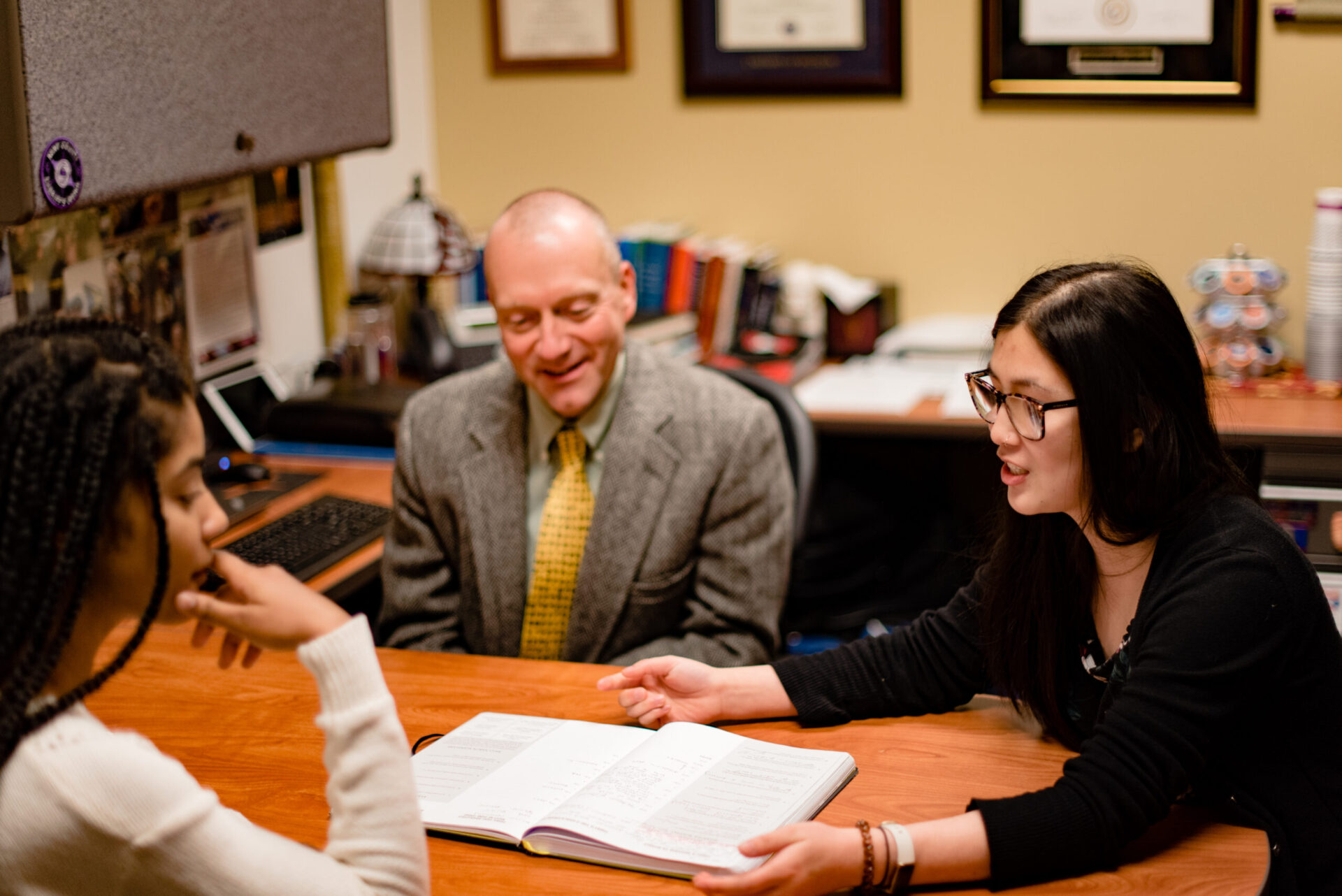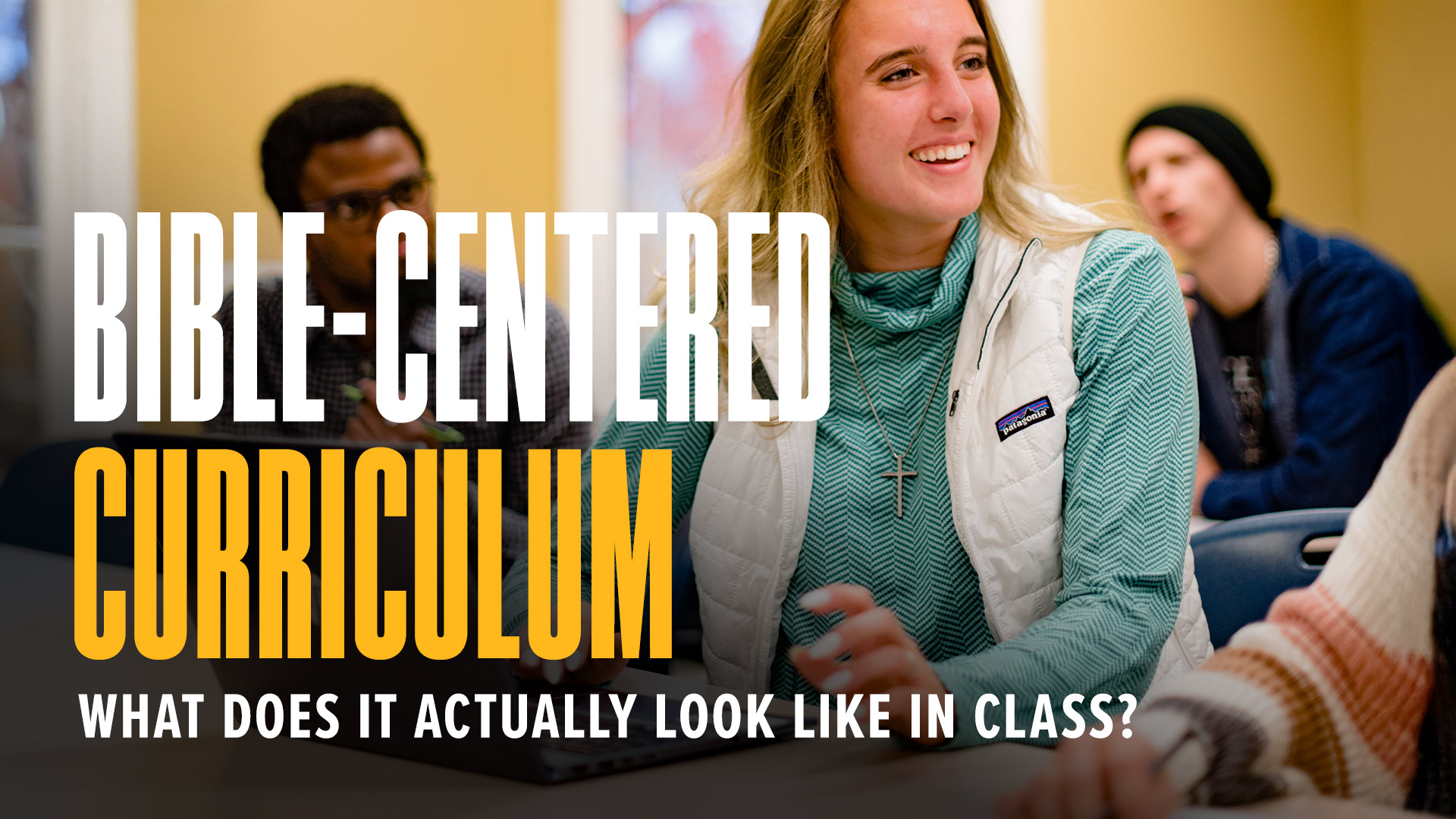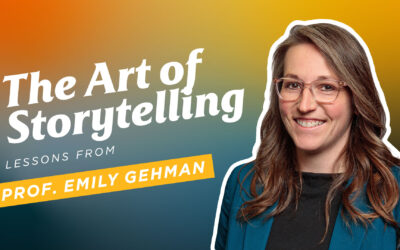When students begin exploring colleges, some look for strong academics, others for a faith-filled community. But when a university says its curriculum is Bible-centered, what does that actually mean? That phrase can sound vague, comforting, yes, but also hard to picture. It’s not simply about taking Bible classes alongside a major. The difference runs deeper, and honestly, it’s something I didn’t fully grasp until I experienced it myself.
Built on the Bible
Bible-centered education doesn’t sit on top of an academic program like a decorative layer. It’s the framework that holds everything together. Think of it as the foundation of a house rather than the paint on the walls. Professors don’t start with a subject and then try to add in a Scripture reference at the end. They begin with the truth of Scripture and let that shape how the subject is taught, how it’s discussed, and how it connects to real life.
In a psychology course, this might mean understanding human behavior through the lens of people being made in God’s image, looking at identity, purpose, and healing with that truth in mind. In a business class, students don’t just study ethics in the text. They talk about what it looks like to reflect God’s character through honest leadership and wise decision-making. Communication courses focus on what it means to speak truthfully, listen with humility, and lead in ways that build others up.

Shaping the Way Students Think
A Bible-centered approach doesn’t only influence what is taught, it reshapes how students think about everything. It moves learning beyond memorizing content and toward deeper reflection. Professors guide students to ask questions that stick with them long after the class ends: What does this topic reveal about God’s nature? What does it say about people, or about the world we’re called to serve? Does this idea line up with biblical truth, and if it doesn’t, how should we respond?
Those questions are ingrained into how students approach problems, analyze situations, and make decisions. In theology and in psychology, in literature and in leadership, students are encouraged to think through the lens of biblical truth. Over time, that kind of reflection becomes second nature. It doesn’t have to be forced, it just becomes how they see the world.
Faith and Learning Stay Together
There are plenty of colleges where students feel like they’re constantly switching between two lanes. One lane for academics, where they write papers and study theories that leave out their values, and another lane for their personal faith, which doesn’t seem to belong in the classroom. At some schools, mentioning your Christian convictions in class can feel uncomfortable, or even affect your grade.
Bible-centered learning means students don’t have to hide what they believe or hold back when talking about what matters most. Their faith is welcomed into the conversation because it helps make sense of the material. It brings clarity. It adds depth. It’s not treated like a problem to overcome, but as a valuable part of how students learn and grow.
This doesn’t mean professors are handing out Bible verses with every chemistry problem or expecting students to quote Proverbs in their economics essays. It also doesn’t mean everything is easy. Students are still challenged to think critically. They still wrestle with big questions. But through it all, they’re encouraged to stay grounded in what they believe, even while exploring tough topics and engaging respectfully with other viewpoints.
Preparing Students for Cultural Engagement
In today’s culture, Bible-centered education takes on extra importance. It prepares students to engage thoughtfully with a world that often misunderstands or questions Christianity. Instead of retreating or avoiding hard conversations, students learn how to speak with clarity and conviction, and also with grace.
Students aren’t learning counter-arguments. They learn how to listen carefully, respond thoughtfully, and stay steady when conversations get complicated. They understand and critique modern ideas not out of fear, but from a place of security and purpose. They’re equipped to work with people from other worldviews, not by compromising their beliefs but by bringing their own voice into the conversation with strength and humility.
That preparation matters whether they’re headed into business, teaching, healthcare, nonprofit work, or full-time ministry. Wherever they go, they’re able to contribute well, not in spite of their faith, but because of how it shapes them.
Professors Who Live It Out
Faculty at Grace Christian University bring impressive academic credentials and deep expertise in their fields, but they also bring something that sets them apart from professors at other institutions. They genuinely care about who students are becoming as people, not only what information they’re absorbing or what GPA they’re maintaining. These professors shape classroom culture not only through their teaching methods, but through the way they authentically walk alongside students through life’s bigger questions. Many professors pray with students during difficult seasons, check in about life circumstances, and model what it looks like to maintain faith that stays steady through both success and struggle. For most students I know, including myself, those genuine relationships end up being one of the most transformative and memorable parts of their entire college experience. Building a Biblical Worldview in every program.

Building a Biblical Worldview
One of the most powerful things about a Bible-centered education is how it develops a biblical worldview across every field of study. In science courses, students explore the complexity of creation and wrestle with how discovery and faith relate. In history classes, they examine human events through the lens of God’s sovereignty and human responsibility.
Creativity takes shape across many disciplines. Students in the Sports Communication & Management program begin to see their work as a way to reflect God’s nature, crafting stories, producing media, and leading teams with integrity and purpose. Psychology majors in courses like Introduction to Psychology and Psychology of Leadership learn that understanding the mind can be a form of discipleship, shaping not only a persons behavior but Christlike character. Business students explore how honest leadership and ethical decision-making reflect the wisdom and justice of God. And psychology students examine human behavior and identity through the lens of Scripture, seeing each person as an image bearer with purpose and value.
It all adds up to something deeper. Students develop what you might call biblical instincts, a habit of starting with God’s Word when thinking through problems or planning for the future. It’s not about fitting verses into assignments. It’s about knowing where to begin when facing real decisions.
The Invitation
For students exploring what kind of college experience will shape the trajectory of their adult lives, a Bible-centered curriculum offers something genuinely powerful and increasingly rare. It points students toward truth that’s enduring rather than trendy, substantial rather than superficial. It invites them to discover more about who God is and who they’re becoming. And it equips them to step confidently into their future with courage, wisdom, and a faith.
And this kind of formation doesn’t stay in the classroom. It carries into families, communities, jobs, and churches. It shows up in how students respond to setbacks, how they serve others, and how they lead in moments that matter.
Bible-centered education looks like truth forming hearts and minds, one professor, one class, one student at a time. And once you’ve experienced it, it’s hard to imagine learning any other way.
Learn More





